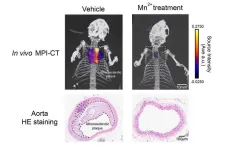Often acquired by hospitalized patients taking broad-spectrum antibiotics, C. diff infections can be deadly. There are more than 450,000 C. diff infections in the U.S. each year, leading to as many as 30,000 deaths, according to public health estimates.1 These infections also confer a high risk of recurrence; more than a third of patients who suffer a C. diff infection will go on to have another in the future.2 Because pneumonia is so common and is typically treated with broad-spectrum antibiotics, hospitalized patients with pneumonia are at increased risk of developing a C. diff infection.
For patients who are admitted to a hospital with pneumonia, clinical guidelines typically recommend the use of azithromycin, which penetrates the lung tissue and can successfully treat Legionella pneumonia as well as more common types of pneumonia. While doxycycline should not be used to treat Legionella pneumonia, it can be effective against other types of pneumonia. In addition, doxycycline has optimal absorption in the upper gastrointestinal tract with minimal impact on the gut microbiome, which could account for the reduced risk of C. diff infection.
In this retrospective study, researchers analyzed outcomes of 156,107 patients treated for pneumonia in Veterans Affairs Hospitals between January 2009 and August 2022. For inclusion in the analysis, patients had to be admitted to the hospital no more than 48 hours before a pneumonia diagnosis to ensure that all cases were considered community-acquired pneumonia. Patients diagnosed with Legionella pneumonia or viral pneumonia were excluded from the study, because the recommended treatment for these conditions is different than that for typical community-acquired pneumonia. Any patient who was diagnosed with a C. diff infection within 30 days of antibiotic treatment was presumed to have antibiotic-associated C. diff.
As expected, based on clinical guidelines, most patients were treated with azithromycin (87%) while a small proportion received doxycycline (13%). Overall, less than 1% of patients developed C. diff infections, but among patients who had experienced a C. diff infection in the year before their pneumonia diagnosis, 12% developed a new C. diff infection associated with the antibiotic treatment. Among patients with no history of C. diff infections, there was no statistical difference in the rate of C. diff infections between those who received azithromycin and those who received doxycycline. However, for patients who had a C. diff infection in the prior year, the use of doxycycline was associated with a 45% reduction in antibiotic-associated C. diff infection compared to azithromycin.
“Our analysis found that in patients with a prior history of C. diff, doxycycline was the only factor associated with a reduction in the incidence of new C. diff infections,” said Kari A. Mergenhagen, PharmD, BCPS, BCIDP, residency director for infectious diseases at the Veterans Affairs of Western New York Healthcare System and senior author of the study. “These results suggest that in cases where Legionella pneumonia can be ruled out prior to treatment, patients at increased risk of C. diff may benefit from the use of doxycycline as a first-line agent.”
Additional findings from the study include:
A total of 1,234 patients were diagnosed with C. diff within 30 days of starting antibiotic treatment for pneumonia. That includes 1,085 patients treated with azithromycin and 149 treated with doxycycline. Of the 1,234 patients who developed C. diff infections within 30 days, 1,104 of them had no prior history of C. diff. Of the patients in the study, 1,064 had been diagnosed with C. diff in the year-long period prior to diagnosis with pneumonia. Because the population in this study came from VA hospitals, the patients were predominantly male, elderly, and Caucasian. Additional studies will be needed to determine whether these findings hold for other patient populations. “Healthcare facilities have a keen interest in reducing the incidence of dangerous and costly healthcare-associated C. diff infections,” said Patricia Jackson, RN, BSN, MA, CIC, FAPIC, 2023 APIC president. “This study shows that for patients with a history of C diff antibiotic choice is an important factor in decreasing these types of infections.”
References
1. Lessa FC, Mu Y, Bamberg WM, Beldavs ZG, Dumyati GK, Dunn JR, Farley MM, Holzbauer SM, Meek JI, Phipps EC, Wilson LE, Winston LG, Cohen JA, Limbago BM, Fridkin SK, Gerding DN, McDonald LC. Burden of Clostridium difficile infection in the United States. N Engl J Med. 2015 Feb 26;372(9):825-34. doi: 10.1056/NEJMoa1408913. PMID: 25714160.
2. Feuerstadt P, Theriault N, Tillotson G. The burden of CDI in the United States: a multifactorial challenge. BMC infectious diseases. 2023;23(1):132.
About APIC
Founded in 1972, the Association for Professionals in Infection Control and Epidemiology (APIC) is the leading association for infection preventionists and epidemiologists. With more than 15,000 members, APIC advances the science and practice of infection prevention and control. APIC carries out its mission through research, advocacy, and patient safety; education, credentialing, and certification; and fostering development of the infection prevention and control workforce of the future. Together with our members and partners, we are working toward a safer world through the prevention of infection. Join us and learn more at apic.org.
About AJIC
As the official peer-reviewed journal of APIC, The American Journal of Infection Control (AJIC) is the foremost resource on infection control, epidemiology, infectious diseases, quality management, occupational health, and disease prevention. Published by Elsevier, AJIC also publishes infection control guidelines from APIC and the CDC. AJIC is included in Index Medicus and CINAHL. Visit AJIC at ajicjournal.org.
NOTES FOR EDITORS
“Impact of Doxycycline on Clostridioides difficile Infection in Patients Hospitalized with Community-acquired Pneumonia,” by Ashley L. O'Leary, Arthur K. Chan, Bethany A. Wattengel, Jiachen Xu, and Kari A. Mergenhagen was published online in AJIC on November 2, 2023. Available at: https://doi.org/10.1016/j.ajic.2023.09.007
AUTHORS
Kari A. Mergenhagen, PharmD BCPS BCIDP (Corresponding author: Kari.Mergenhagen@va.gov), Department of Pharmacy, Veterans Affairs of Western New York Healthcare System
Ashley L. O'Leary, PharmD, AAHIVP, Department of Pharmacy, Veterans Affairs of Western New York Healthcare System, Department of Pharmacy Practice, D’Youville School of Pharmacy
Arthur K. Chan, PharmD, Department of Pharmacy, Veterans Affairs of Western New York Healthcare System
Bethany A. Wattengel, PharmD, BCPS, BCIDP, Department of Pharmacy, Veterans Affairs of Western New York Healthcare System
Jiachen Xu, PharmD, Department of Pharmacy, Veterans Affairs of Western New York Healthcare System
# # #
END


